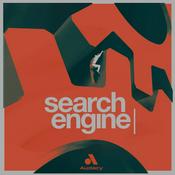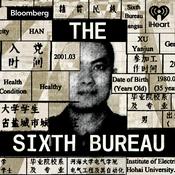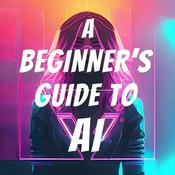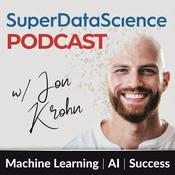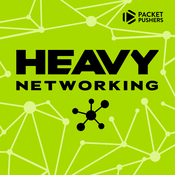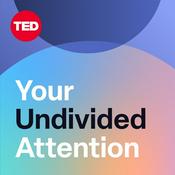122 episodes
- What happens when software stops just “chatting” and starts acting in the real world, across real workflows, with real consequences?
In this episode of AI-Curious, the Head of AI at Cognizant goes deep on AI agents and agentic workflows: what they are, why enterprises are investing heavily, and what it actually takes to make agent systems reliable and safe at scale. We unpack what separates an AI agent from a traditional chatbot, why “agency” changes the stakes, and how multi-agent systems can be designed to reduce risk instead of amplifying it.
We also explore concrete enterprise use cases, including agent hierarchies that coordinate across complex systems (like networks, utilities, and other operations), plus how “agentic process automation” builds on older automation models while adapting to unexpected edge cases. Finally, we zoom out to the future of work: which tasks get augmented first, why disruption is happening faster than most forecasts, and how trust in AI systems may shift over the next several years.
Guest
Babak Hodjat — Head of AI at Cognizant; leads AI lab work focused on scaling reliable, trustworthy agent systems; longtime AI builder with deep experience in applied natural language systems.
Key topics we cover
07:00 — What an AI agent is (and how it differs from a chatbot)
13:03 — State of play: what’s working, what’s not, and why “agent systems must be engineered”
17:00 — A practical multi-agent design pattern across telecom, power, and agriculture
20:28 — Agentifying rigid processes (and handling unforeseen situations)
24:14 — Who should deploy agents, why single “do-everything” agents are risky
26:34 — An open-source starting point for experimenting with multi-agent systems
29:12 — Guardrails: reducing hallucinations, adding redundancy, and safety thresholds
35:29 — Why we should use LLMs for reasoning, not knowledge retrieval
38:15 — The future of work: tasks, jobs, and decision-making roles shifting upward
41:59 — AGI, limitations, and why modular multi-agent systems may matter
44:57 — A prediction: we’ll delegate more than we expect as systems become more trustworthy
Follow AI-Curious on your favorite podcast platform:
Apple Podcasts
Spotify
YouTube
All Other Platforms - Is AI quietly creating more work than it’s replacing, and are we measuring the job market the wrong way?
In this episode of AI-Curious, we talk with the CEO of Upwork, Hayden Brown, about what the platform is seeing across the global freelance economy, and why the “AI is killing jobs” narrative can miss what’s happening at the edges of the market. We also dig into how to adopt AI inside an organization without just “sprinkling fairy dust” on old workflows, and what it takes to make AI rollout a cultural shift, not just a tooling upgrade.
Guest
Hayden Brown is the CEO of Upwork, the global work marketplace connecting businesses with freelance talent across knowledge-work categories. We discuss Upwork’s vantage point on hiring trends, the rise of fractional work, and what AI-driven change looks like when companies redesign workflows end-to-end rather than retrofitting existing systems.
Key topics we cover
03:50 — A global background and why opportunity access shapes the mission
05:27 — The scale of Upwork and why freelancing is a major part of the economy
07:14 — How we approached AI adoption as a structured, company-wide program
08:47 — Early “two-year vision” ideas that reshaped marketing and product workflows
11:34 — Reducing fear: how we framed AI internally, including room for mistakes
16:03 — Building an AI agent experience (and what it changed about job posts)
17:14 — Why “reinventing, not retrofitting” separates AI winners from strugglers
22:24 — Why macroeconomics can explain more than AI in hiring slowdowns
23:01 — The core claim: AI creating more opportunities than it’s destroying
24:05 — Fractionalization: how full-time jobs get broken into AI + human slices
25:09 — A concrete example of humans working alongside AI in production workflows
26:32 — From “prompt engineer” to “AI generalist”: orchestration becomes the ask
28:11 — Why the AI jobs debate is too binary, and what’s getting missed
31:43 — Practical reskilling: embedded experts who train teams while upgrading systems
36:29 — AI’s impact across unexpected categories, including creative work
39:15 — Five-to-ten-year outlook: humans as orchestrators, premium on human skills
43:22 — Career advice for early-career listeners in an AI-shaped job market
45:40 — Real-life AI use: editing, learning, and replacing the blank page problem
Follow AI-Curious on your favorite podcast platform:
Apple Podcasts
Spotify
YouTube
All Other Platforms - What does “human-first AI” actually look like when you have to make decisions under pressure, hit numbers, and keep trust intact?
In AI-Curious, we talk with Kate O’Neill — “the Tech Humanist” and author of What Matters Next — about how leaders can adopt AI in ways that strengthen human outcomes instead of quietly eroding culture, morale, and customer experience. We dig into why so many AI initiatives fail for non-technical reasons, how to think beyond short-term wins, and why prompting is less “prompt engineering” and more like learning to delegate clearly.
Key topics:
Prompting as delegation: defining success conditions, constraints, and what “good” means (00:00)
Kate’s early work at Netflix and what personalization taught her about human impact (04:45)
What “human-unfriendly” tech looks like in practice, from subtle friction to scaled harm (09:28)
The Amazon Go example: how small design constraints can scale into behavior change over time (11:19)
AI in the workplace: why “cut, cut, cut” is shortsighted, and what gets lost when you optimize only for this quarter (14:14)
Trust and readiness: why reskilling fails when people don’t believe there’s a future for them (16:45)
The now–next continuum: making decisions that “age well,” not just decisions that look good immediately (17:29)
Preferred vs. probable futures: identifying the delta and acting to move outcomes toward what you actually want (19:22)
“Chatting with Einstein”: using AI to become smarter vs. outsourcing thinking (22:13)
Why most AI pilots fail: human and organizational readiness, not the tech itself (24:02)
Questions → partial answers → insights: building an organizational muscle that compounds (28:21)
Bankable foresight: why Netflix invested early in what became streaming (30:37)
Trend watch: the pivot from LLM hype to agentic AI, and why prompting still matters (38:58)
Sycophancy and “best self” prompting: getting better outputs by being explicit and structured (41:01)
Probability vs. meaning: what LLMs can do well, and what they can’t replace (44:45)
A fun real-world workflow: Kate’s Notion + AI system for hotel coffee-maker recon (46:26)
Career advice in the AI era: adaptability, “human skills,” and shifting definitions of value (49:21)
Guest
Kate O’Neill is a tech humanist, founder and CEO of KO Insights, and the author of What Matters Next: A Leader’s Guide to Making Human-Friendly Tech Decisions in a World That’s Moving Too Fast. She advises organizations on improving human experience at scale while making emerging technology commercially and operationally real.
KO Insights:
https://www.koinsights.com/about-kate/
Follow AI-Curious on your favorite podcast platform:
Apple Podcasts
Spotify
YouTube
All Other Platforms Deep-dive on AI and Creativity, with The Man Designing the World’s Creative Tools (Eric Snowden, Adobe’s SVP of Design)
22/1/2026 | 49 mins.What happens when the world’s most-used creative tools get smarter — and creators worry they’re losing the wheel?
In this episode of AI-Curious, we talk with Eric Snowden, Senior Vice President of Design at Adobe, about how Adobe is weaving AI into Photoshop, Lightroom, Acrobat, and beyond — while trying to keep the tools respectful of craft, muscle memory, and the human spark. We dig into the bigger question beneath the feature releases: as AI accelerates creation, do we get more powerful… or do we become passengers approving machine outputs?
Key topics:
Two buckets of Adobe AI: upgrading existing tools vs building net-new AI products (00:04:55)
Photoshop “harmonize,” Lightroom auto culling, and Acrobat “PDF spaces” (00:04:55)
Why PDFs are a bottleneck for knowledge work, and how Acrobat can help you “get 80% of the way there” (00:07:18)
Project Graph explained: node-based workflows that stitch together building blocks like Firefly and Photoshop (00:08:25)
A concrete Project Graph example: 2D product photo → 3D asset → generated ad → multiple animated versions, with the user still in control (00:09:42)
Time saved vs creating more: how Firefly helped Adobe teams move faster and “make more things,” including “like 40% improvement” on time-to-market (00:14:28)
A Max London demo that captures the core principle: “his hand was on the wheel” (00:17:45)
“Quiet AI” in practice: enhanced audio in Adobe Podcast that can make phone-recorded audio sound studio-ready (00:19:57)
Respecting creative muscle memory: why “subtraction is not always good,” and why Adobe adds new workflows without removing old ones (00:24:43)
Firefly’s principles: licensed content, knowing what’s in the model, and compensating creators (00:29:29)
Content authenticity as a “nutritional label for AI”: immutable metadata describing what was done to an image (00:30:15)
The self-driving car analogy: creators need to be able to “grab the wheel” and tweak under the hood (00:36:00)
Vibe coding inside Adobe: designers using Cursor and internal tooling to build prototypes that hit real APIs (00:39:18)
A leadership playbook for AI adoption: focus the OKRs, make training practical, show examples, remove roadblocks (00:44:19)
The future of AI creative tools: communicating intent beyond text prompts, and shifting from “look what I do with AI” to storytelling (00:46:36)
Guest
Eric Snowden is the Senior Vice President of Design at Adobe, overseeing design and the AI-infused creative tools used by millions of creators.
Mentioned in this conversation
Adobe Firefly
Project Graph (node-based creative workflow building)
Enhanced audio in Adobe Podcast
Content authenticity / provenance metadata (“nutritional label” concept)
Cursor and “vibe coding” for rapid prototyping inside enterprise teams
Follow AI-Curious on your favorite podcast platform:
Apple Podcasts
Spotify
YouTube
All Other Platforms- What happens when AI can “read the whole internet” but the internet stops volunteering its best work?
In this episode of AI-Curious, we talk with Tony Stubblebine, CEO of Medium, about what he calls AI’s “broken social contract” with the web, and why the next era may be less about a “dead internet” and more about a dead public internet. We unpack the incentives that made the open web thrive, how AI search summaries change the traffic bargain, and what a realistic path forward could look like for publishers, platforms, and writers.
Key topics we cover:
-Why generative AI broke the web’s old value exchange, and what “social contract” means in practical terms (00:03:24)
-Tony’s “three Cs” framework for a healthier AI ecosystem: consent, credit, compensation (00:05:13)
-The publisher response spectrum: blocking crawlers, fighting spam/slop, and what happens if collaboration fails (00:04:25)
-The shift from public publishing to private communities (Discords, group chats, newsletters) and what drives that retreat (00:07:06)
-How AI search summaries can cut the incentive to publish publicly by reducing click-through and traffic (00:08:21)
-Why AI systems still depend on human source material, and what happens when the best content moves behind “closed doors” (00:09:27)
-Cloudflare’s role in the escalating crawler arms race, including large-scale blocking and other countermeasures (00:16:48)
-A proposed solution: an internet-wide licensing standard instead of one-off deals, including the Really Simple Licensing (RSL) approach (00:18:07)
-What “paying creators” could look like in practice, including opt-in/opt-out controls and better transparency for writers (00:19:33)
-“Dead internet theory” vs. the more plausible outcome: a dead public internet, and why Tony is cautiously optimistic about a new equilibrium (00:23:06)
-The “second wave” of AI: moving from replacement to augmentation, and how Medium is thinking about AI tools that support flow state rather than write for you (00:26:03)
-Why AI detectors don’t solve the problem, and why Medium focuses on quality and reader value as the enforceable standard (00:34:04)
-Advice for writers: the difference between the creator economy and the “expert economy,” and what’s likely to be more sustainable (00:38:43)
-Tony’s prediction: “trust but verify” becomes the balance point, and the web finds an equilibrium because AI can’t function without public sources (00:43:27)
Guest
Tony Stubblebine is the CEO of Medium and a leading voice on the evolving relationship between generative AI and the open web.
Mentioned in this conversation
Medium’s framework: Consent, Credit, Compensation
Follow AI-Curious on your favorite podcast platform:
Apple Podcasts
Spotify
YouTube
All Other Platforms
More Technology podcasts
Trending Technology podcasts
About AI-Curious with Jeff Wilser
A podcast that explores the good, the bad, and the creepy of artificial intelligence. Weekly longform conversations with key players in the space, ranging from CEOs to artists to philosophers. Exploring the role of AI in film, health care, business, law, therapy, politics, and everything from religion to war. Featured by Inc. Magazine as one of "4 Ways to Get AI Savvy in 2024," as "Host Jeff Wilser [gives] you a more holistic understanding of AI--such as the moral implications of using it--and his conversations might even spark novel ideas for how you can best use AI in your business."
Podcast websiteListen to AI-Curious with Jeff Wilser, The AI Daily Brief: Artificial Intelligence News and Analysis and many other podcasts from around the world with the radio.net app

Get the free radio.net app
- Stations and podcasts to bookmark
- Stream via Wi-Fi or Bluetooth
- Supports Carplay & Android Auto
- Many other app features
Get the free radio.net app
- Stations and podcasts to bookmark
- Stream via Wi-Fi or Bluetooth
- Supports Carplay & Android Auto
- Many other app features


AI-Curious with Jeff Wilser
Scan code,
download the app,
start listening.
download the app,
start listening.





